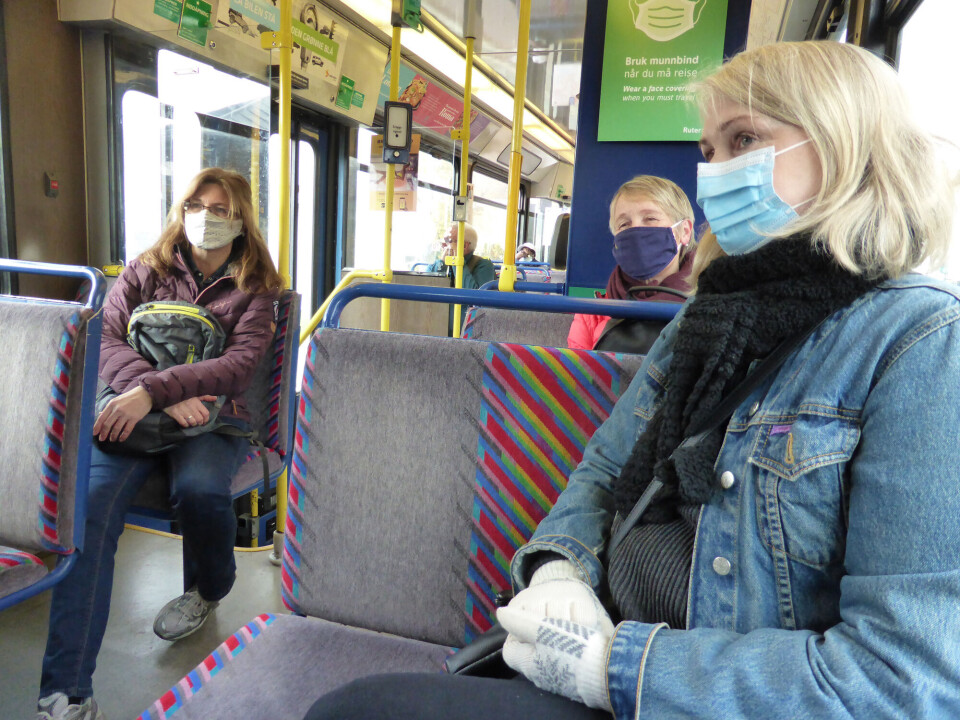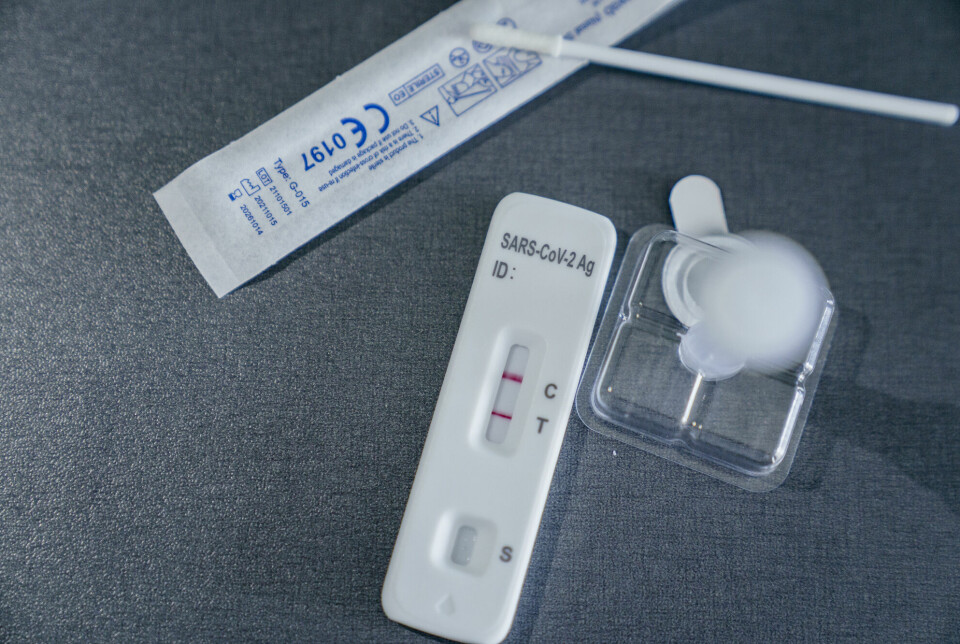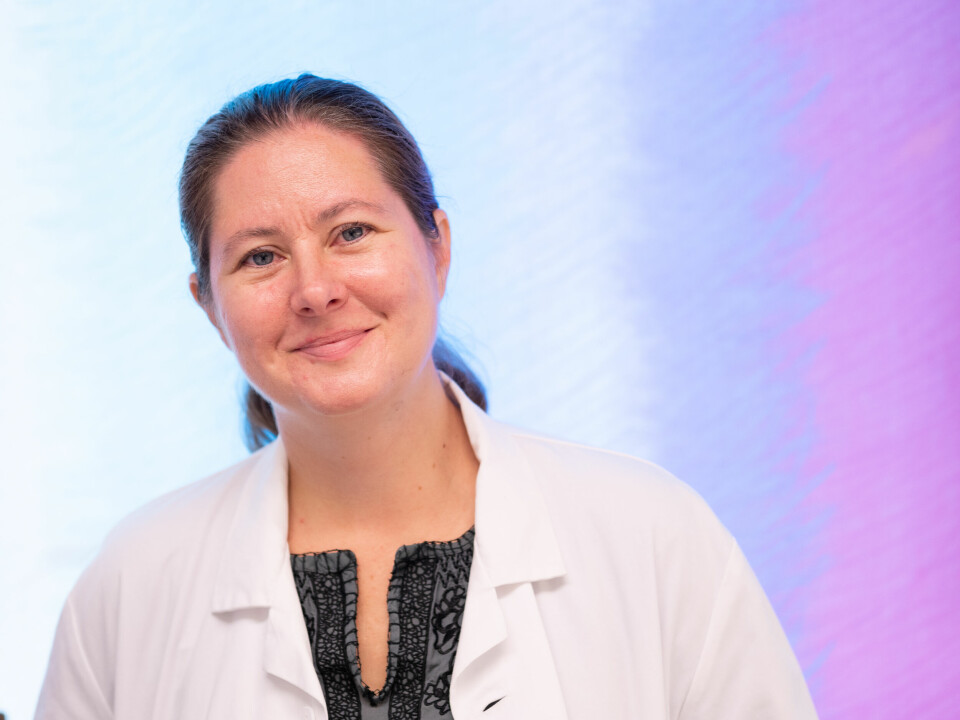
Is it dangerous to get Covid-19 multiple times?
People regularly cite one study in particular that says getting repeated infections with Covid-19 is not good. According to Norwegian researchers, however, most of us can stop worrying about it.
According to the Norwegian Institute of Public Health (NIPH), you have most likely been infected with SARS-CoV-2 – the virus that gives you Covid-19 – at least once. And it will happen again.
“The virus has been circulating quite freely since February 2022, and you would have had to have done a lot of things right not to have encountered it,” Preben Aavitsland tells sciencenorway.no. He is a director at NIPH’s Division for Infection Control and Environmental Health.
“Many people may have had an infection with no symptoms or such mild symptoms that they think they just had a cold,” he says.
Most people who are infected now, therefore, are getting Covid-19 for the second, third, or fourth time.
“As a result, the disease will generally be milder. That’s how the immune system works,” Aavitsland says.
“The virus was most dangerous when it was new to our immune system. Since then, it has become increasingly less dangerous."
A virus with many consequences
At the same time, some researchers and studies make the opposite claim.
"Researchers disagree over how bad it is to be reinfected, and whether Covid-19 can cause lasting changes to the immune system ," an article in Nature reported about what is called ‘repeat Covid’.
It’s well known that the SARS-CoV-2 virus can cause more than a short-term cold. And it can be no small matter, as researchers have gradually found that Covid-19 can affect the heart, the brain, the blood, the nervous system, and more.
According to a recent scientific review, where the researchers collected several studies to gain a more comprehensive and reliable picture of the findings, the coronavirus can attack many organs. Studies have shown the virus can cause abnormal changes in the lungs, damage to the liver, kidneys and spleen, and links to heart disease and blood clots.
Researchers have also found evidence that a Covid-19 infection can shrink the grey matter of the brain in humans and lead to an increased risk of diabetes.
And then there’s long Covid, which can lead to prolonged exhaustion, breathing difficulties, brain fog, and other problems related to the nervous system.
But if you survived OK the first time, is it safe to assume things will go well again the next time?
An advantage with more rounds
According to Gunnveig Grødeland, an immunologist and vaccine researcher at Oslo University Hospital and the University of Oslo, the answer is likely yes.
If the course of your infection went well last time, you can expect them to go equally well or perhaps even better the next time. The vaccine researcher actually suggests that occasionally contracting Covid-19 could be beneficial.
“The reason is that you ‘remind’ the immune system that it has memory responses that can be reactivated, so these remain both strong and perhaps achieve an even greater breadth in terms of what they can protect against,” she says.
When the body is reinfected with Covid-19, it remembers how it fought the virus last time and gets to practice fighting it again.
To fight the SARS-CoV-2 virus, the body partly relies on antibodies—proteins that bind to the surface of the virus and make it easier for the body to detect it and get rid of it. In addition, the body activates T-cells, which recognise which cells in the body are infected by viruses and remove them.
The body creates T-cells both after vaccination with the mRNA vaccines and after you become infected with the virus.
“But with a viral infection, T-cell responses are formed against all parts of the virus, and not just the spike protein that is found in the vaccine. This immune response will therefore better protect against all variants of SARS-CoV-2, including those we are not aware of,” Grødeland says.
“T-cells often have a somewhat shorter lifespan than antibodies. So when you get infected, you will maintain a good supply of T-cells that can protect you next time."

An American study published as a preprint in March this year – meaning it has not yet been assessed by other researchers – confirms this effect. The researchers looked at basketball players in the National Basketball Association (NBA) and the equipment around them. A strict test regime provided good data on infections and vaccinations. After a second infection, the illness passed more quickly, in about five days instead of about seven days. Players who had received a dose of vaccine between their two infections recovered the fastest.
According to a British study from this summer, also published as a preprint, reinfections are "generally less severe than the first infections".
Most viewed
This spring also saw the publication of a review study in which a summary of several results showed that those who were both vaccinated and had been infected with the omicron variant had very good protection against serious illness and hospitalisation.
But you can be unlucky
But at the same time: The exception makes the rule.
“It's a bit like the flu. You can avoid getting sick from the flu for many years, then suddenly a variant comes along that is different and where your immune responses don't work as well. Then you can get quite sick. This can also happen with SARS-CoV-2,” Grødeland says.
“This depends on what kind of immune response you have from before. There is a large degree of individual variation here, and we know little about that today. There are lots of factors that influence how the response develops in individuals —for example what you have been exposed to in the past, your genetics, age, gender,” she says.
Now we're onto something that Grødeland thinks is particularly interesting.
Differences from person to person
“We have been exposed to what we call variable viruses, such as the flu virus, which are constantly mutating over many years. Yet there is much we do not understand about exactly how the immune system is affected by the repeated infection by different variants of the same virus. It's actually very interesting,” she says.
The researchers know a little. It has been observed, for example, that the antibodies that the body produces are biased by the types you have previously been exposed to, which leads to a smaller amount of antibodies against new variants.
“It is thought that this may be the explanation for why older people become sicker when they are exposed to influenza as an older person compared to when they were younger. After all, they have a lot of responses that are activated, but if these are focused on previous variants, then that could explain why they get sicker,” Grødeland says.
She adds that this is why it is more important that older people get the vaccine every year.
But that doesn't explain everything. And that is also why there will always be some exceptions.
“There are all these individual differences that we don't know about. In biology, there will always be exceptions. But with basic research, we can gain better insight into the basic processes that govern the development of immune responses, and then we can become better and better at protecting the population,” Grødeland says.

Increased risk of death and disease
There aren't really many studies on the effect of having Covid-19 several times. It's not that easy to study it any longer, either. People have stopped testing, they have taken different vaccines and different numbers of vaccine doses, and the virus continues to mutate into new variants.
However, according to a study that received a lot of attention last year, it is clearly preferable not to get Covid-19 again and again.
Immunologist Ziyad Al-Aly of the Washington University School of Medicine and his colleagues found that a second infection with Covid-19 increased the risk of death and hospitalisation, heart disease, lung disease, diabetes, neurological disorders, and mental health problems. This applied regardless of vaccination status. And although the risk was highest immediately after infection, it persisted for six months.
The study was done on older American veterans. So what do these findings have to say for to people who do not belong to that category?
Old white American men
“The study is well done,” says Jörn Klein, professor at the University of South-Eastern Norway.
“That every new Covid-19 infection entails a certain risk is not surprising to me. What is surprising is that the risk associated with reinfection extends beyond the acute phase,” he says.
Klein is therefore clear in his recommendation that people over the age of 60, those with underlying health problems with an increased risk of serious illness, and health personnel who are often in contact with the virus be vaccinated again.
“Going through several rounds of Covid-19 is not necessarily dangerous for everyone, but it is not without risks, especially for certain groups,” he says.
Klein himself has received his fifth dose of the coronavirus vaccine. He uses a mask in situations where he is in close contact with other people, such as at the airport, and always has a small bottle of hand sanitiser with him.
But he also believes that most people can relax.
“First of all, it is clear that a re-infection with SARS-CoV-2 is generally less serious than a first infection, thanks to the immune response developed from the previous exposure,” Klein says.
Gunnveig Grødeland believes that the American study on veterans has not taken into account underlying factors.
Many people in the US don’t have good access to healthcare, she points out. American veterans may have had underlying illnesses they did not know about until they gained access to health care through the study.
Nor is Preben Aavitsland worried by the Al-Aly study.
“It shows that the elderly and the chronically ill can have serious outcomes from a second Covid-19 infection, but the risk is lower the second time than the first time. That’s not surprising. That is why we recommend refresher doses for the elderly and other risk groups, even if they have had Covid-19 before,” Aavitsland says.
What about long Covid?
Al-Aly also admits that it is debatable whether the study can say something about the entire population, given its sample of older, white men. But if you get hit in the head twice, it's worse than being hit once, he said in an interview with Nature. And if you managed to avoid long Covid the first time, you may not be as lucky after a second infection.
"What we found is truly undeniable: It's very clear in our data that reinfection contributes additional risk of long Covid," Al-Aly said in a recent interview with the online newspaper STAT.
Grødeland believes it is "absolutely ridiculous" to compare developing immune responses after a second infection with being hit in the head twice.
“The immune system is precisely set up so that it remembers the first exposure to a virus. The next time you encounter this virus, the immune system has protective responses ready. It's not like the head grows a protective shield when you're hit so that you’re prepared for another blow,” she says.
“But every time the immune system encounters a virus or a vaccine, the responses will be refined into ever-improving protection,” she adds.
In Norway, more people got long Covid after the delta variant compared to the omicron variant which came later, according to Grødeland.
“The risk therefore decreases with more exposures. And it is a development that is expected to continue,” she says.
Figures from the UK confirm that self-reported symptoms of long Covid were lower after a second infection.
Among those who already had long Covid, another study from the UK found that 80 per cent got worse when they got Covid-19 again.
Also in this study, most people — 89 per cent —had contracted long Covid after their first Covid-19 infection. 10 per cent had gotten it after re-infection, and 1 per cent after a third round with the virus.
Aavitsland from NIPH highlights an article that suggests that much of the research on long Covid is low quality. The definitions of the condition are too broad, and there is a lack of control groups, the researchers write.
A textbook virus
Gunnveig Grødeland has had Covid-19 three times that she knows of. The last infection she discovered was without symptoms – the test was taken because someone in her social circle became ill with the virus.
“I have my two vaccine doses and have no plans to take more. I am not in any risk group, and given my age, I think I’m in good shape,” she says.
“The elderly should take booster doses, but for us healthy adults there is no reason to do so,” she says.
She only used a mask when it was mandatory.
“The more we learn about SARS-CoV-2, the more we see that the virus fits perfectly with classic textbook viruses,” Grødeland says.
What is most unique about the virus is the loss of smell and taste that some have experienced.
“I don't remember hearing about that when it comes to other viruses," she says. “But the other symptoms are also described with other viruses. The immune response is a classic textbook example. That’s fortunate, because then our knowledge matches what’s happening in the outside world quite well, and we know how to deal with it."
———
Translated by Nancy Bazilchuk
Read the Norwegian version of this article on forskning.no





































